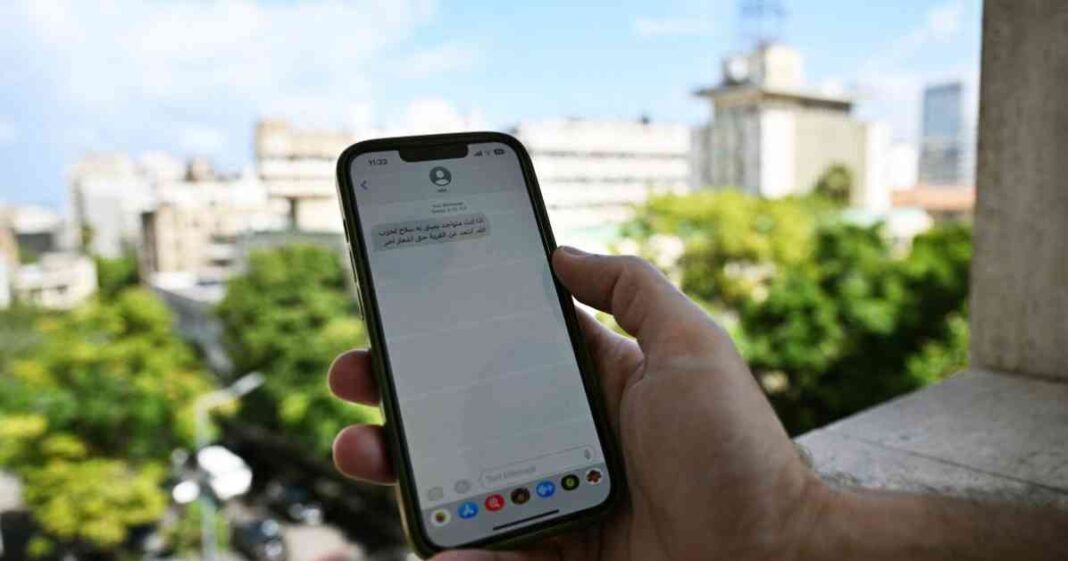Israeli military officials recently issued warnings to residents in southern Lebanon and parts of Beirut to evacuate certain areas, sparking fears of a possible bombing campaign leading to a full-scale war. The concerns arose from suspicions that Israel had infiltrated Lebanon’s telecommunications networks, allowing them access to private communication details of individuals across the country.
The warnings, which were delivered through phone calls, text messages, and radio broadcasts, instructed people to move away from Hezbollah strongholds. This tactic of issuing warnings before bombings is not new for Israel, as they have employed similar strategies in Gaza. The messages were a stark reminder of Israel’s technological superiority over Lebanon and raised questions about how Israel obtained the personal details of Lebanese civilians.
The recent bombings in Lebanon resulted in the deaths of over 270 people, with attacks spanning across the south and east of the country. The escalation of tensions has put the region on edge, with fears of a full-blown conflict looming. Lebanon’s Information Minister, Ziad Makary, was among those who received a recorded phone call urging evacuation.
Experts speculate that Israel may have gained access to Lebanon’s telecom infrastructure through hacking or data leaks. The ability to send targeted warnings to specific individuals indicates that Israel has real-time information about Lebanese civilians, not just Hezbollah members. This level of intelligence gathering allows Israel to pinpoint targets with precision, potentially minimizing civilian casualties.
Israel has a history of accusations regarding hacking into Lebanese telecommunications networks. In 2018, Lebanon’s UN representative accused Israel of sending recorded messages to civilians in a village warning of imminent explosions. The use of malware such as Pegasus, developed by the Israeli NSO Group, has raised concerns about privacy violations and data security in Lebanon.
While Israel’s advanced technological capabilities are formidable, weaknesses in Lebanon’s data privacy framework have also contributed to vulnerabilities. State actors in Lebanon have been implicated in data breaches, exposing citizens’ personal information. The lack of explicit privacy guarantees in the Lebanese Constitution and weak laws protecting electronic data have left citizens susceptible to surveillance and hacking.
Recent reports of attempted WhatsApp hacking in Lebanon highlight ongoing concerns about data security. Users have reported receiving suspicious messages prompting them to click on links, potentially compromising their accounts. The need for stronger data protection measures and privacy laws in Lebanon is evident, as the threat of cyber espionage looms large in the region.
As tensions between Israel and Lebanon continue to escalate, the issue of data security and privacy remains a pressing concern. The ability of state actors to access private information underscores the importance of robust data protection measures to safeguard citizens’ personal details and prevent unauthorized access to sensitive information.
